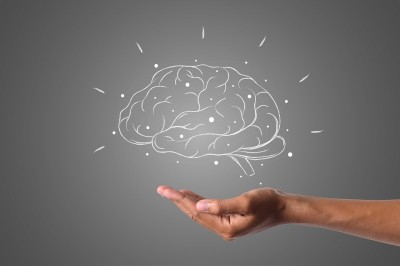From Lab to Life: How Dr. Christian Beste’s Neuroscience Discoveries are Transforming Mental Health Treatment
 Dr. Christian Beste, a leading expert in cognitive neurophysiology, has dedicated his career to understanding the complex workings of the human brain. As a Professor at the TU Dresden, Dr. Beste’s research has focused on unravelling the mysteries of cognitive control and its implications for mental health conditions, particularly ADHD. His groundbreaking discoveries are not only advancing our theoretical knowledge, but also transforming the way we approach mental health treatment.
Dr. Christian Beste, a leading expert in cognitive neurophysiology, has dedicated his career to understanding the complex workings of the human brain. As a Professor at the TU Dresden, Dr. Beste’s research has focused on unravelling the mysteries of cognitive control and its implications for mental health conditions, particularly ADHD. His groundbreaking discoveries are not only advancing our theoretical knowledge, but also transforming the way we approach mental health treatment.
Unravelling the Neural Basis of Cognitive Control
At the core of Dr. Christian Beste’s research is the exploration of cognitive control mechanisms and their neural underpinnings. Through his innovative experimental designs and cutting-edge neuroscience techniques, Dr. Beste has identified key brain regions and networks that play crucial roles in regulating thoughts, actions, and goal-directed behaviour. His findings have shed light on the intricate interplay between brain areas such as the frontal cortex and basal ganglia, providing a deeper understanding of how these regions contribute to cognitive control.
Dr. Beste’s research has also elucidated the role of neurotransmitters, such as dopamine and GABA, in modulating cognitive control processes. By examining the neurochemical basis of these functions, his work has opened up new avenues for developing targeted pharmacological interventions and optimising treatment strategies for individuals with ADHD and related conditions.
Neurodiversity and Personalized Treatment Approaches
One of the most significant contributions of Dr. Christian Beste’s research is his emphasis on neurodiversity and its implications for mental health treatment. Recognizing the wide range of neurological variations among individuals, Dr. Beste has sought to understand how these differences influence cognitive control and overall functioning. His findings have challenged the one-size-fits-all approach to mental health treatment, highlighting the need for personalised interventions that take into account an individual’s unique neurological profile.
Dr. Beste’s work has paved the way for the development of tailored treatment strategies that harness an individual’s strengths and address their specific challenges. These approaches include:
Neurofeedback training
Cognitive enhancement strategies
Adaptive learning programs
By embracing neurodiversity and developing targeted interventions, Dr. Beste’s research is transforming the landscape of mental health treatment, offering hope and support to individuals and families affected by ADHD and other neurodevelopmental conditions.
Translating Research into Clinical Practice
Dr. Christian Beste’s commitment to translational research has been a driving force behind his efforts to bridge the gap between laboratory discoveries and real-world applications. By collaborating with healthcare providers and technology companies, Dr. Beste is accelerating the translation of his findings into practical tools and interventions that can directly benefit individuals with mental health conditions.
One notable example of this translational approach is the development of user-friendly neurofeedback devices. By leveraging his expertise in EEG analysis and cognitive control, Dr. Beste has contributed to the creation of innovative neurofeedback systems that allow individuals to monitor and modulate their brain activity in real-time. These devices have shown promise in enhancing cognitive performance, reducing symptoms of ADHD, and promoting overall mental well-being.
Empowering Patients and Families
Dr. Christian Beste’s research is not only transforming mental health treatment, but also empowering patients and families to take an active role in their own care. By providing a deeper understanding of the neural basis of cognitive control and the impact of neurodiversity, his work is helping to destigmatize mental health conditions and promote a more inclusive and supportive society.
Through his public engagement efforts, including educational initiatives, documentary films, and podcasts, Dr. Beste is making complex neuroscience concepts accessible to a wider audience. By sharing his knowledge and insights, he is empowering individuals and families with the information and tools they need to advocate for themselves and make informed decisions about their mental health care.
Building a Brighter Future for Mental Health
As Dr. Christian Beste continues to push the boundaries of neuroscience research, his discoveries hold immense promise for revolutionising mental health treatment. By unravelling the intricacies of cognitive control and neurodiversity, his work is laying the foundation for a future in which personalised, evidence-based interventions are the norm rather than the exception.
Looking ahead, Dr. Beste’s vision for mental health care is one of collaboration, innovation, and patient-centered approaches. By fostering interdisciplinary partnerships and leveraging cutting-edge technologies, he seeks to accelerate the development of novel treatments and support systems that can transform the lives of individuals with neurological and mental health conditions.
With his unwavering dedication to scientific excellence, translational impact, and public engagement, Dr. Christian Beste is poised to lead the charge in building a brighter future for mental health. His groundbreaking discoveries and tireless efforts are offering hope, empowerment, and the promise of a better tomorrow for countless individuals and families affected by these conditions.
Prof. Dr. Christian Beste
Christian Beste
Technische Universität Dresden 43
01307 Dresden
Deutschland
E-Mail: pr@christian-beste.de
Homepage: https://www.christian-beste.de
Telefon: +49 351 463-32398
Pressekontakt
Prof. Dr. Christian Beste
Christian Beste
Technische Universität Dresden 43
01307 Dresden
Deutschland
E-Mail: pr@christian-beste.de
Homepage: https://www.christian-beste.de
Telefon: +49 351 463-32398
Comments are closed.